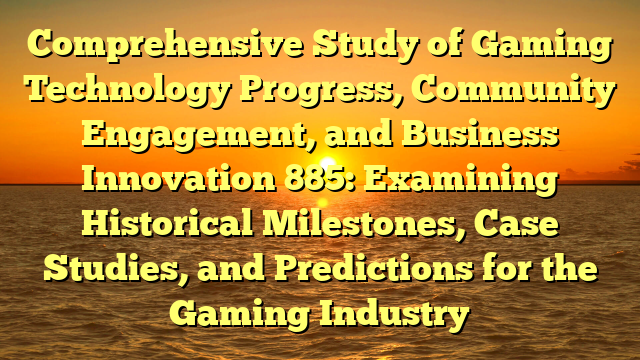
In recent years, the integration of technology into various aspects of life has become inevitable, especially in financial management, healthcare, and cognitive improvement. The influence of technological advancements has not only revolutionized these fields but has also created new opportunities for innovation and improvement. This article explores how technology is shaping the future of economic growth, intelligence, and health, highlighting the challenges and benefits it brings.
Finance has always been a critical aspect of human life, and with the evolution of technology, it has experienced massive changes in recent decades. The introduction of cryptocurrencies, distributed ledger technology, and AI has significantly reshaped how people manage and invest money. The rise of fintech has made financial services more accessible, leading to increased financial inclusion across the globe. Financial technology, such as robo-advisors, peer-to-peer lending platforms, and mobile banking, has democratized access to wealth management and investment opportunities.
One of the primary ways technology is influencing finance is through automation and AI. For instance, machine learning algorithms can now predict stock market trends, provide personalized investment advice, and automate trading, significantly reducing the need for human intervention. Additionally, blockchain is disrupting traditional banking systems by providing decentralized solutions that enhance security, transparency, and efficiency. These technologies are changing how businesses and individuals interact with their finances, making transactions faster, safer, and more transparent.
While financial systems benefit from technological advancements, the role of technology in improving cognitive abilities is equally profound. The rapid development of AI, machine learning models, and virtual reality has led to significant progress in the field of cognitive science. AI has been leveraged to create intelligent tutoring systems, improve decision-making processes, and enhance the learning experience. Technologies like natural language processing have also made it easier for machines to interact with humans, making education and cognitive development more interactive and personalized.
Moreover, technology has also contributed to the development of cognitive enhancement tools, such as brain-computer interfaces (BCIs), which allow individuals to control devices directly with their minds. These advancements not only aid in medical treatments for people with disabilities but also open the door to new ways of improving human intelligence and cognitive performance. As technology continues to evolve, the potential for expanding human intelligence seems boundless.
Health and well-being have also witnessed transformative changes due to technology. Telemedicine, wearable health devices, and machine learning in diagnostics are some of the many ways technology has revolutionized healthcare. The COVID-19 pandemic accelerated the adoption of telemedicine, allowing patients to consult with doctors remotely and reducing the burden on hospitals. Wearable devices, such as fitness trackers and smartwatches, have empowered individuals to take charge of their health by monitoring vital signs, activity levels, and sleep patterns. These devices provide valuable data that can help doctors make more accurate diagnoses and treatment recommendations.
In addition to these advancements, AI has played a crucial role in revolutionizing healthcare diagnostics. Machine learning algorithms are now being used to analyze medical images, predict patient outcomes, and even discover new treatments. For example, AI-powered systems have demonstrated the ability to detect early signs of diseases such as cancer, diabetes, and heart disease with remarkable accuracy, often outperforming human doctors in some cases. This ability to detect diseases at an early stage has the potential to save millions of lives and reduce healthcare costs.
Furthermore, the integration of AI in healthcare systems has the potential to optimize hospital operations and improve patient care. Automated scheduling systems, AI-powered administrative tools, and data analysis platforms are streamlining operations, reducing human error, and enhancing the overall efficiency of healthcare delivery. The rise of personalized medicine, driven by technology, is also a significant breakthrough. With the help of genomic data, doctors can now tailor treatments to individual patients, increasing the chances of successful outcomes.
However, the increasing reliance on technology in these domains comes with its own set of challenges. For one, the digital divide remains a significant concern. While technology has the potential to bring about positive change, not everyone has equal access to it. People in rural or underserved areas often lack access to the internet, advanced medical services, or financial tools. This disparity could further widen the gap between the wealthy and the underprivileged, creating new forms of inequality.
Another concern is the issue of data privacy and security. As more personal and sensitive information is collected by healthcare providers, financial institutions, and cognitive platforms, the risk of cyberattacks and data breaches grows. It is crucial to implement robust security measures and establish regulations that protect users’ privacy while still allowing for the benefits of technological advancements.
Despite these challenges, the future of technology in finance, intelligence, and healthcare looks promising. As innovation continues to accelerate, new solutions will likely emerge to address these issues and maximize the positive impact of technology. The integration of emerging technologies such as quantum computing and artificial intelligence could further disrupt these sectors, providing even more opportunities for growth and development.
In conclusion, technology has already made a profound impact on finance, intelligence, and health, revolutionizing each of these fields in ways that were once unimaginable. The continued advancement of digital tools and AI will continue to drive innovation, improving the way people manage their finances, enhance their cognitive abilities, and access healthcare. However, slot demo is essential to address the challenges associated with these advancements, such as the digital divide and data privacy concerns, to ensure that everyone can benefit from these technological innovations. The future of technology in these domains is bright, and the possibilities are endless.





